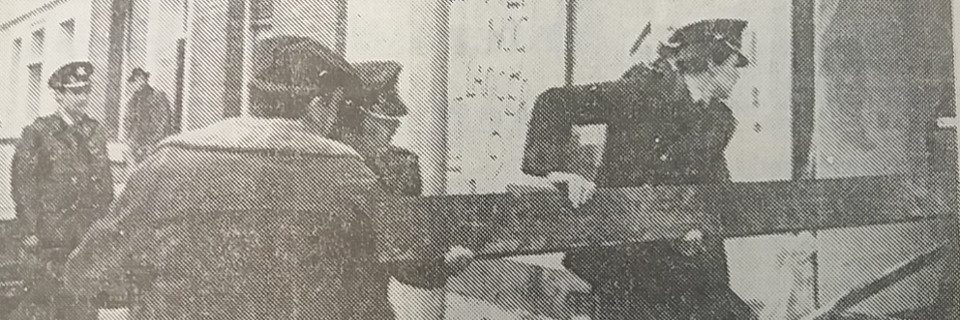Rigaer94 protests: Translation of NOS article
Translation of Krakersvrede in Berlijn slaat na ontruiming om in grimmigheid:
Burnt out cars, defaced bank buildings and police officers attacked. In
Berlin for the last two weeks almost every evening it goes grim. After
the eviction of a squatted building two weeks ago, protesters intend to
“plunge the city into chaos.”
Tonight a huge demonstration is announced, and everyone expects more
violence. Berlin politicians talk of terror. The squatters find it
legitimate violence. Anne: “Those who do not want to listen must feel it”.
The squatter riots of the 1990s are back in Berlin. Since that time
Berlin squatters are almost all legalised. They pay a relatively low
rent. They see the eviction of the Rigaer 94 squat as a sign that this
situation is ending.
The squatters have a rental contract but it is not watertight. Now the
housing market is picking up in Berlin and housing prices rise, the
owners are looking for a plan that gives more money and they want to get
rid of the squatters.
The advantageous contracts came about at the end of the last century,
says SquatProfessor Andrej Holm of the Humboldt University to
correspondent Jeroen Wollaars. “The squatters promised not to use
violence any more if they were not evicted. But those were agreements
between the city council and squatters. In the meantime, the properties
have been sold to investors.”
The current owners do not feel bound by the agreement, according to
Holm. The investors have decided that the contracts sit badly together
and try to end them. The squatters do not want to let that happen. They
see this as a violation of the agreements and, in turn, they find that
they therefore no longer need to remain nonviolent.
Previously, it did not matter for the landlords if you had ex-squatters
or regular tenants, says Holm. “That is not the case anymore, because
the rents in Berlin are now going through the roof.”
He warns that the city is changing. “Berlin was always a city of
subcultures. Not only homes are disappearing, but also everything around
them, including shops, bars, theatres and cinemas. Many other Berliners
see that also and so the squatters get a lot of sympathy. And their [ie
the other Berliners’] housing costs are also rising.”
Wollaars also sees the city changing. “Maybe this is the beginning of
the end of a scene. A scene that in ever more places is displaced by
coffee shops and wine bars. But this scene will not go down without a
fight.”

Leave a Reply